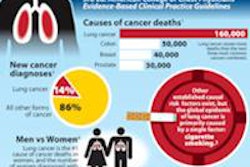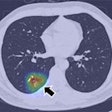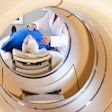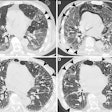A study to be presented at the upcoming American Society of Clinical Oncology (ASCO) meeting in Chicago next month indicates that follow-up CT scans may be unnecessary to detect cancer relapse in patients with diffuse large B-cell lymphoma. Instead, abnormal blood tests or physical exams may be sufficient.
Researchers from the Mayo Clinic in Rochester, MN, found that only 1.5% of patients in remission but who later relapsed had their cancer detected on a scheduled imaging scan, typically CT. Current surveillance guidelines for diffuse large B-cell lymphoma recommend CT scans no more than every six months after the completion of treatment. Patients also get physical exams and blood tests.
Despite these guidelines, the optimal surveillance strategies are unclear, according to a research team led by Dr. Carrie Thompson, a hematologist at Mayo. So the researchers decided to test the different monitoring approaches in a population of 537 newly diagnosed lymphoma patients.
Over the median follow-up period of 59 months, 109 patients (20%) who entered post-treatment follow-up experienced a relapse. Overall, at the time of relapse, 68% of patients had symptoms, 42% had an abnormal finding on a physical exam, and 55% had abnormalities on blood tests.
On the other hand, scheduled surveillance imaging studies detected relapses in only eight (1.5%) of the 537 patients before clinical signs appeared.
In an independent commentary on the study, Dr. Clifford Hudis, ASCO president-elect, said the research indicates that the potential benefits of imaging may not outweigh the burdens of the scans on patients, "in terms of anxiety, physical risks, or financial costs." As so many relapses are accompanied by symptoms, patients should be vigilant about reporting symptoms between scheduled visits, Thompson added.
The study will be presented on Saturday, June 1, at 2:30 p.m.



















